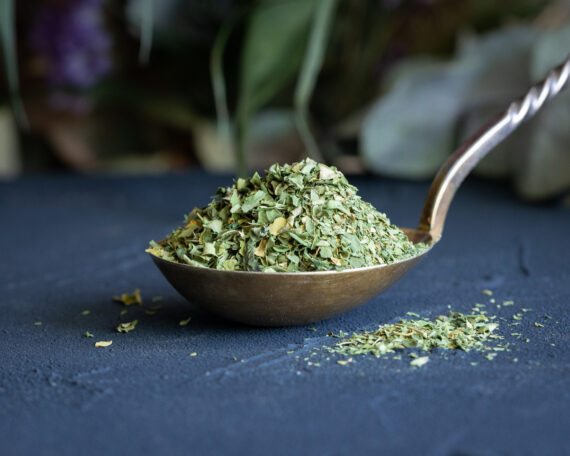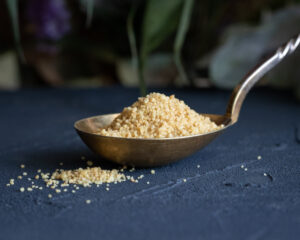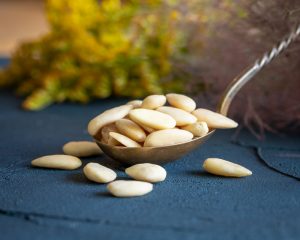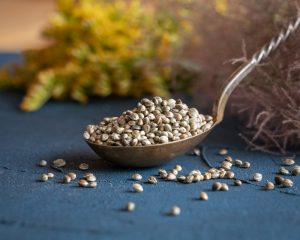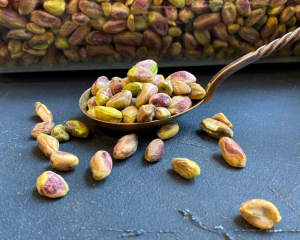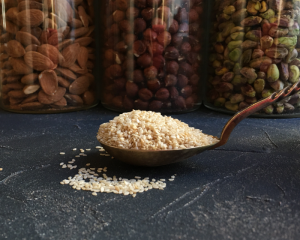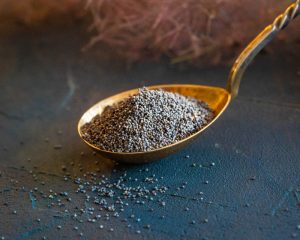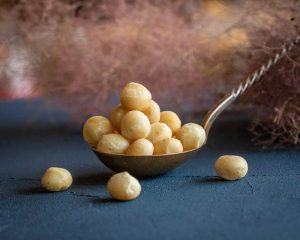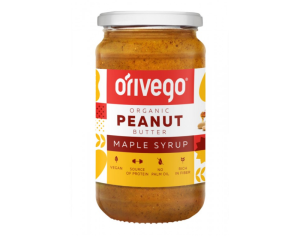Organic moringa leaves, chopped
From 2.80€
Moringa(Moringa oleifera) is also known as the “miracle tree”. Its roots, stems, leaves, seed pods, resin and flowers have long been considered medicinal. Moringa is native to the Himalayan region, especially in India. Later, it spread to south-west Asia, south-west and north-east Africa, Madagascar, the Philippines and the USA.
Both moringa powder and dried moringa leaves come from the same source, the Moringa oleifera tree, but differ in preparation, texture and use.
Moringa powder is obtained by drying fresh moringa leaves at low temperatures to preserve the nutrients. The dried leaves are then ground into a fine powder, thus preserving the nutrients.
Dried moringa leaves are obtained by drying them until they become crisp and brittle. Like moringa powder, dried moringa leaves are rich in nutrients and contain essential vitamins and minerals. However, they may contain a slightly lower concentration of nutrients compared to the nutrient content of moringa powder.
Health benefits of moringa
It contains important vitamins, including vitamin A, vitamin C, vitamin E and B vitamin complexes (such as B6, folic acid and riboflavin). It is also rich in minerals such as calcium, iron, potassium and magnesium. Moringa also boasts powerful antioxidants such as quercetin, chlorogenic acid and beta-carotene, which support overall health and strengthen the body’s defence against free radicals.
In Ayurveda and other traditional systems of medicine, moringa leaves have been used to alleviate various health conditions. They are thought to have anti-inflammatory, antibacterial and antiviral properties and are used in herbal preparations for digestive problems, joint pain, skin diseases and other ailments.
Immunity support. The abundance of vitamins and antioxidants in moringa powder helps to strengthen the immune system, and boost resistance to infection and disease.
Reducing inflammation. Moringa’s anti-inflammatory properties can help relieve inflammatory conditions such as arthritis and support joint health.
Improves brain function. The nutrients in moringa powder, such as vitamin E and flavonoids, support brain health, cognitive function and may reduce the risk of neurodegenerative diseases.
Better digestion. Moringa powder aids digestion by promoting healthy gut flora, relieving constipation and reducing gastrointestinal discomfort.
Skin rejuvenation: high levels of vitamins A and E in Moringa powder can improve skin health and promote a youthful complexion.
Blood sugar regulation. Some studies have shown that moringa can help lower blood sugar levels, which is beneficial for people with diabetes or those at risk of insulin resistance.
Energy charge. Moringa’s nutrient content provides natural energy support, fights fatigue and promotes vitality.
Traditionally, crushed moringa leaves have been used for water purification due to their natural flocculating (coagulant) properties, which can help remove dirt and pathogens from water.
Possible side effects of Moringa powder
Although moringa powder is generally safe to consume, excessive consumption may cause mild side effects such as nausea, diarrhoea or upset stomach. Pregnant or breastfeeding women, those taking medication or those with specific medical conditions. Caution should be exercised before adding moringa powder to the diet.
Use
They can be added to a variety of foods and drinks to increase their nutritional value.
In soups and stews – stir chopped moringa leaves into soups or stews to increase their nutritional value.
In pastry – add chopped moringa leaves to muffins, bread or pancakes.
Tea – steep chopped moringa leaves in hot water for a soothing and healthy herbal tea.
The recommended daily dose is 3-6 g (1-2 tbsp).
Moringa powder offers many health benefits and can have a positive impact on overall well-being. Thanks to its excellent nutritional content and versatile use in a variety of culinary products, moringa powder is an affordable and convenient way to increase the nutritional value of a healthy diet. As with any dish, moderation is key.
Enjoy your journey to better health!
Sources:
https://www.webmd.com
https://www.mindbodygreen.com
ECHO (Educational Concerns for Hunger Organisation) says: “Malnutrition is the leading cause of infant mortality.”
NOTE. The information provided here should not be interpreted as advice for treatment or other health problems.
We encourage you to make decisions about your personal health by considering different sources of information.
100% organic moringa leaves
-
Store in a cool, dry place.


